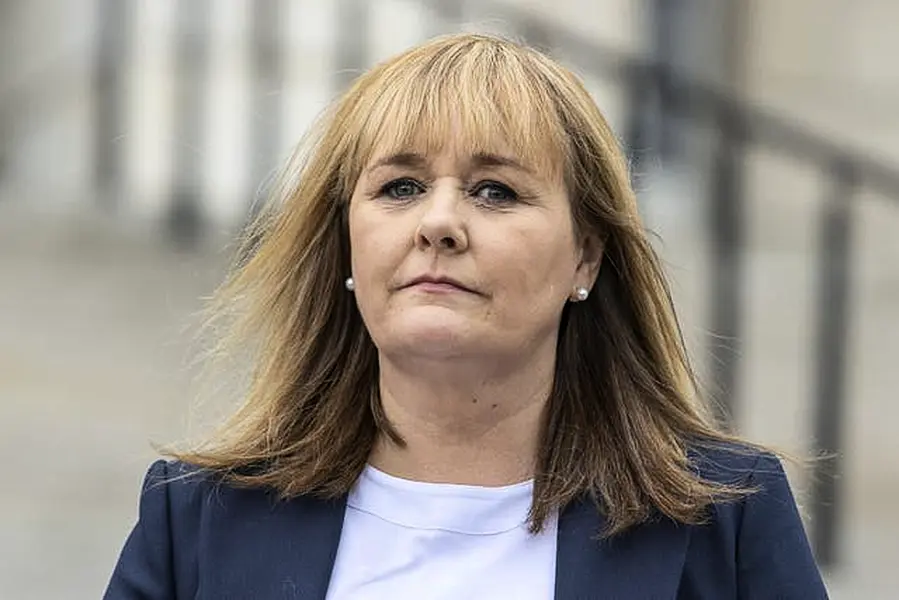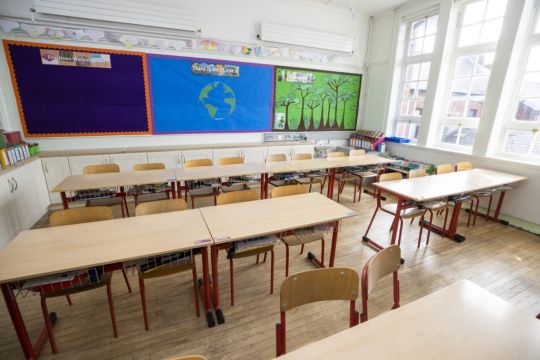Grave concerns have been expressed by Stormont MLAs over rising pupil absences in Northern Irish schools due to the coronavirus pandemic.
The Northern Ireland Assembly was recalled due to a Sinn Féin motion following criticism of guidance issued to schools as pupils returned this month, the availability of Covid-19 tests and the burden of contact tracing.
On Wednesday, it was announced that the Public Health Agency would take over the tracking and tracing of Covid-19 cases in schools.
Education Minister Michelle McIlveen was in the chamber on Thursday morning as Sinn Féin MLA Nicola Brogan opened the debate, saying she has been “inundated” with “grave concerns” from principals, school leaders, teachers, parents and pupils.
Ms McIlveen responded telling MLAs she believes guidance issued to schools represents a “balanced approach”.

Ms Brogan said school staff and pupils are facing “huge disruption to education and daily life because of the poor planning and preparation of our education minister”.
She said that, at Larne High School, 400 out of 700 children had had to stay at home due to Covid-19.
“Within days of trying to implement the minister’s restart, teachers are reporting difficulties of keeping children safe and in school, and the scale of the disarray became increasingly more apparent,” she said.
Ms Brogan claimed the minister was “shamed” to act on the “eve of this debate”.
“Although this move is certainly welcomed, we must make sure that these duties are carried out correctly with the PHA and that the burden is removed from principals and school leaders,” she said.
Ms Brogan added: “We all know the importance of children attending school, we all want pupils in school and the classrooms to be up and running but we also know that schools need proper support to remain open safely during the pandemic.”
'Crisis conditions'
SDLP MLA Daniel McCrossan also backed the motion which calls on the Stormont Assembly to formally note its concern at the situation.
He said schools, teaching staff and principals are facing “crisis conditions” and “patience is wearing very thin as they continue to be expected to work under increasingly intolerable conditions”.
“One principal at 6pm yesterday sat in tears with me for an hour at breaking point, a person that I consider to be very very strong that can almost handle any situation, forced into a very difficult position by the pressure burdened on her by the current guidance in its current form,” he told MLAs.
“In recent days we have reached and exceeded that point where our minister and the department have failed to act to repair the situation quickly enough with the exception of the PHA moving in more recent hours.
“It took overwhelming pressure from MLAs of this House, parents and the media to force the hand of the DUP minister once again.”
Response
Ms McIlveen responded telling MLAs “everyone wants children to be able to “access their education in a safe environment”.
She described high community prevalence of Covid-19 leading to increased numbers of cases in schools and of close contacts.
“This has resulted in major disruption to children’s education,” she said.
“We have worked very hard to minimise the impact on pupils.
“I also recognise the challenges faced by families in having to manage children being out of school, either ill or self-isolating.
“It has to be a priority for all of us to have children in school where we all agree they should be.”
I believe we have a balanced approach in our guidance
She said schools were provided with advice from both her department as well as the Public Health Agency on close contact and self-isolation and testing processes which “reflected the agreed Executive position that is based upon expert medical and scientific advice”.
The minister said the guidance came after engagement across the summer month and moved away from a “detailed list of prescriptive requirements, often telling principals what either ‘must’ or ‘cannot’ happen in their school”.
“I believe we have a balanced approach in our guidance,” she said.
Ms McIlveen said she is “assured” that “the more targeted approach to contact tracing that has been agreed will result in fewer pupils having to self-isolate unnecessarily and the range of mitigating measures will continue to ensure pupils are safe in their school environment, learning and socialising with their friends, as they should be”.







